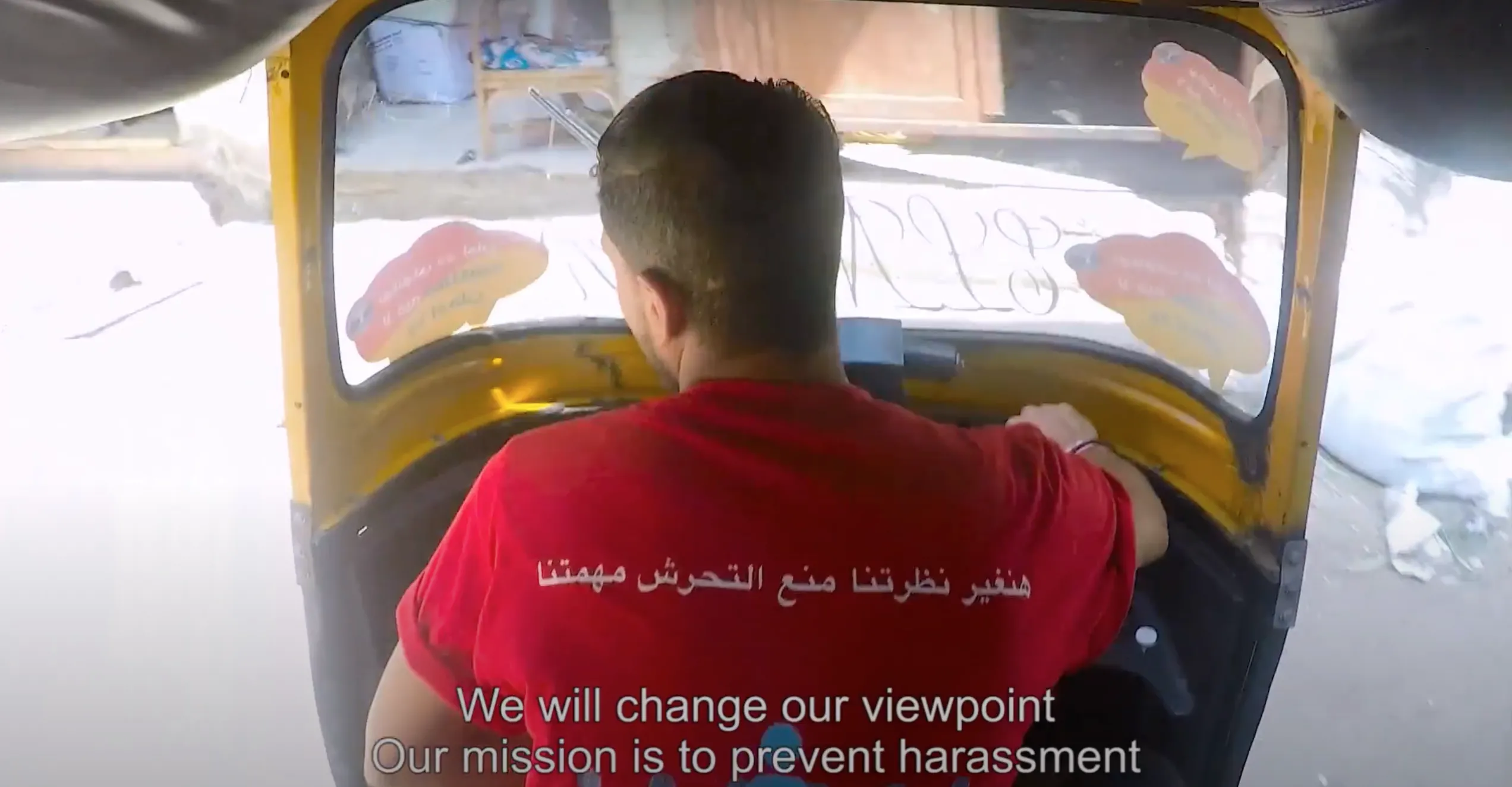Background
CARE’s Safe Cities Free of Violence Against Women and Girls project strategy mapped and corresponded with CARE’s framework for engaging men and boys.
Intervention
Project activities included roundtable discussions with religious and family leaders, awareness-raising campaigns, interactive theater performance workshops, and art therapy sessions. The interactive theater performances were an opportunity for participants to express themselves through acting and engage in an open dialogue with audience members on sexual harassment and gender-based violence (GBV).
The art therapy sessions provided a space for the participants to shift perspectives, address feelings and manage behaviors toward violence, and improve self-esteem. The workshops took place in three phases: self-expression, evaluation of concepts, and inner reflection. The first phase focused on helping participants open up and discuss issues that they may not be accustomed talking about. The second phase guided the participants through these thoughts, helping them to reflect on perspectives and concepts that are directly or indirectly related to violence. The third phase invited a process of healing associated with the repercussions of being observers, survivors, or perpetuators of violence. These sessions gave the participants an opportunity to reflect and express their ideas and perspectives in a safe environment, and to adopt a proactive stance to addressing GBV in public spaces.

